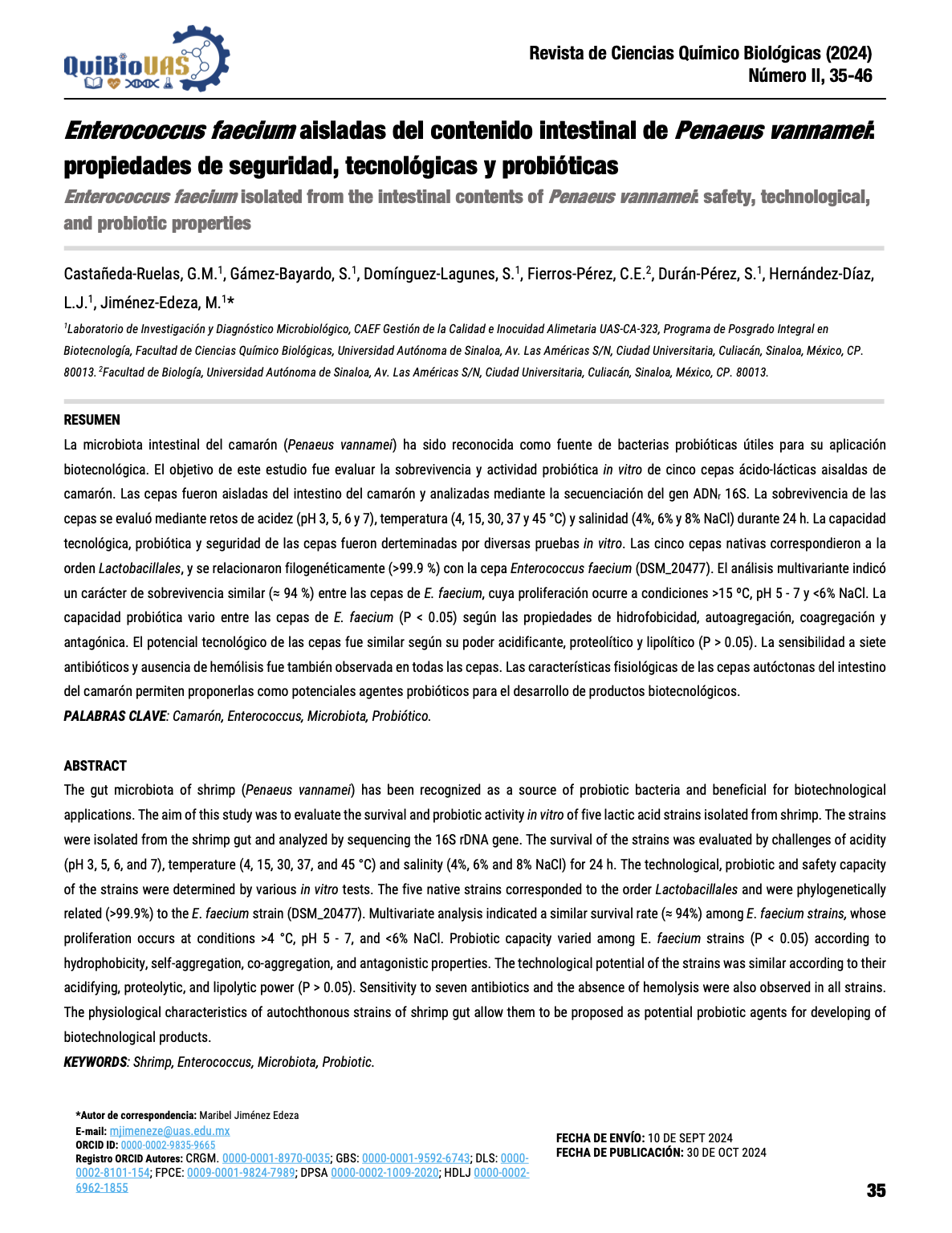Enterococcus faecium isolated from the intestinal contents of Penaeus vannamei: safety, technological, and probiotic properties
Keywords:
Shrimp, Enterococcus, Microbiota, ProbioticAbstract
The gut microbiota of shrimp has been recognized as a source of probiotic bacteria useful for biotechnological application. The aim of this study was to evaluate the survival and probiotic activity in vitro of five lactic acid strains isolated from Penaeus vannamei. The strains were isolated from the shrimp gut and analyzed by sequencing the 16S rDNA gene. The survival of the strains was evaluated by challenges of acidity (pH 3, 5, 6 and 7), temperature (4, 15, 30, 37 and 45 °C) and salinity (4%, 6% and 8% NaCl) for 12 h. The technological, probiotic and safety capacity of the strains were determined by various in vitro tests. The five native strains corresponded to the order Lactobacillales and were phylogenetically related (>99.9%) to the E. faecium strain (DSM20477). Multivariate analysis indicated a similar survival rate (≈ 94%) among E. faecium strains, whose proliferation occurs at conditions >4 °C, pH 5 - 7 and <6%NaCl. Probiotic capacity varied among E. faecium strains (P <0.05) according to hydrophobicity, self-aggregation, co-aggregation and antagonistic properties. The technological potential of the strains was similar according to their acidifying, proteolytic and lipolytic power (P >0.05). Sensitivity to seven antibiotics and absence of hemolysis were also observed in all strains. The physiological characteristics of autochthonous strains of shrimp gut allow them to be proposed as potential probiotic agents for the development of biotechnological products.
Downloads

Downloads
Published
Issue
Section
Categories
License
Copyright (c) 2024 QUIBIOUAS, Journal of Biological Chemical Sciences

This work is licensed under a Creative Commons Attribution-NoDerivatives 4.0 International License.


